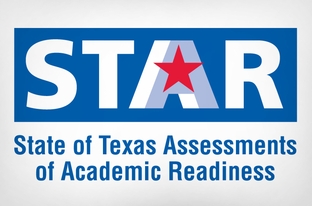Oof.
The COVID-19 pandemic appeared to undo years of improvement for Texas students meeting grade requirements in reading and math, with students who did most of their schooling remotely suffering “significant declines” compared to those who attended in person, according to standardized test results released Monday by the Texas Education Agency.
In districts where fewer than a quarter of classes were held in person, the number of students who met math test expectations dropped by 32 percentage points, and the number of students who met reading expectations dropped by 9 percentage points compared to 2019, the last time the test was administered. In districts with more than three-quarters in-person instruction, the number of students meeting math expectations only dropped by 9 percentage points and those who met reading expectations by 1 percentage point. Students of color and lower-income students saw greater gaps as well, although those gaps were smaller than the one between remote and in-person instruction.
“The impact of the coronavirus on what school means and what school is has been truly profound,” Texas Education Commissioner Mike Morath told reporters Monday. “What we know now with certainty is that the decision in Texas to prioritize in person instruction was critical.”
[…]
Since 2012, test results in the state had been steadily improving, but after COVID-19 related disruptions, the percentage of students meeting reading expectations dropped back to 2016 rates and the percentage meeting math expectations dropped to 2013 passing rates. Math test performance saw the most significant drop, from 50% of students meeting their grade level in 2019 to only 35% this year.
Hispanic students in districts with over three-quarters of learning done remotely saw the largest drops compared to other demographics, with a 10 percentage point decrease in the number of students meeting reading expectations and a 34 percentage point decrease in those meeting math expectations. This is followed by Black students taking mostly remote classes, who saw a 6 percentage point decrease in those meeting reading expectations and a 28 percentage point in those meeting expectations for math.
Students who took the test in Spanish also saw “far more significant declines in rates of grade level” than those who took the test in English, Morath said.
“The data may be disheartening, but with it, our teachers and school leaders are building action plans to support students in the new school year,” he said. “Policymakers are using it to direct resources where they are needed most.”
He said parents can also sign in to TexasAssessment.gov to go over their children’s results and strategize how to catch them up.
As the story notes, there were places where remote learning was not associated with declines; indeed, some remote-heavy districts did just fine. The Lege is going to look into that, and so hopefully if nothing else we’ll get some good data about how and why remote learning can be successful. The STAAR was not the only standardized test to see significant declines, with math being the bigger issue than reading. There will be plenty of funds available, from a bill passed this session to the most recent COVID relief package from Congress, that will provide resources for tutoring, and that will be very necessary. If we work hard and get lucky then maybe this won’t have a big lasting impact on students’ lives. But we need to get serious about making up the lost ground, and we have no time to lose. The Chron has more.


Speaking as a teacher who taught remotely all year to mostly remote students, I’d like to see these data broken down to distinguish between remote learners who attended classes on the regular versus those “remote learners” who were tasked with daycare or roofing work.
I’m no huge fan of online learning, but a big driver this year was that difference – which families and students treated this like school and which didn’t.
It’s good to have input/feedback from those affected and in the know thanks to personal experience or direct observation (in addition to the insights to be gained from thoughtful analysis of hard data). Thank you for posting, Joel. Hopefuly, others will follow your (and voter_worker’s) example. Many OTK readers were probably unaware that you are an educator.
Pingback: Superintendent House has arrived – Off the Kuff